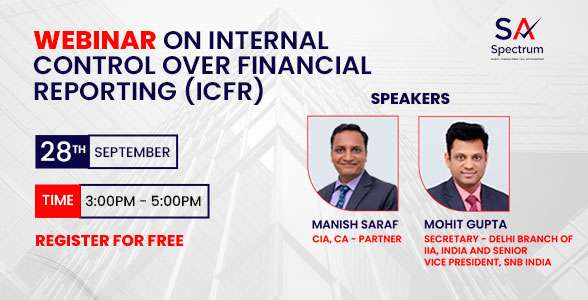What is Financial Control Audit?
Financial Control Audit’s prima facie activities are to audit and control, recording, accounting and reporting of day-to-day financial transactions of any organization. This process also includes reviewing the sufficiency of internal financial controls. As the financial performance of a company can be gauged by the correctness and accuracy of financial reporting that is done on a timely basis, the financial control audit’s role is pivotal in maintaining the records of the organization as per set International Standards and Guidelines. The analysis of this financial performance of the business sieves the right information related to the profitability of the business, unforeseen fall in revenue, and many more. Financial control audit also helps the management to ensure optimum utilization of resources available within the organization.
Is there are any difference between Financial Statement Audit and Financial Control Audit?
Generally, people get confused with Financial Statement Audit (also known as External Audit) and Control audit (also known as Internal Audit). Although any audit processes’ target would be identifying and analyzing the financial situation of the organization and accordingly suggest solutions and thereby the Financial Statement Audit and Control Audit have a similar input, the process of each is different from the other.
Financial Control or Internal Audit deals with the assessment of financial controls as they are related to the Management report. These may include verification of financial results against the company’s own internal targets, verification of financial discipline and other activities to ensure compliance and detection of frauds, etc. The internal auditor performs this process either every month or quarterly helps in finding the gaps in the financial controls and suggests the necessary solutions. The internal audits present a precursor to the Management of the Company and helps them take corrective actions even before any undesirable activities are detected by the External Audits.
On the other hand, Financial Statement Audit is a process, often mandated by Regulations of the land, that is done at the end of the year (or more frequently depending on the jurisdiction), where the external auditors examine the organization’s financial statements and accordingly shares their opinion on the health of the company for the purposes of Shareholders and the Regulators.
Benefit from the financial control audit?
- The company’s resources can be protected with the application of effective control over financial reporting. With the help of the control audit, the management can take precautions against fraud losses, errors, misuse, or any other irregularities.
- Assists the management in planning risk mitigating strategies, cost reduction measures, and financial analysis.
- Helps and supports the Management in planning strategic business by discussing the financial performance of the business on Monthly or Quarterly.
- The company can benefit a lot because of the financial control audit process, as it would lessen the fraud risk or other irregularities.
Nature of services catered under financial control audit?
- The incidence, completeness, and accuracy of the financial transactions are checked
- Analyzed if cost reduction measures are practiced
- Checked if the transactions are authorized
- Check if each duty is segregated, recorded, and tagged to each transaction
- Variance and BEP analysis
- Finding and suggesting an alternate for cost reduction
- Affirmation that revenue and expenses are recorded as per IFRS and GAAP
- Validation of gross profit margin
- Analyzing the optimum profitability.
From the entire blog, we can summarize that the Financial Control Audit is effective in identifying and mitigating the risk that the organizational financial statements might have missed or misstated. Spectrum Accounts have successfully been playing the role of internal or external auditors for various companies in the country and adding significant value to the Management decision making and ensuring compliance. The auditors also ensure that the management understands the procedure thoroughly and comprehends the risk involved.



 contact us
contact us